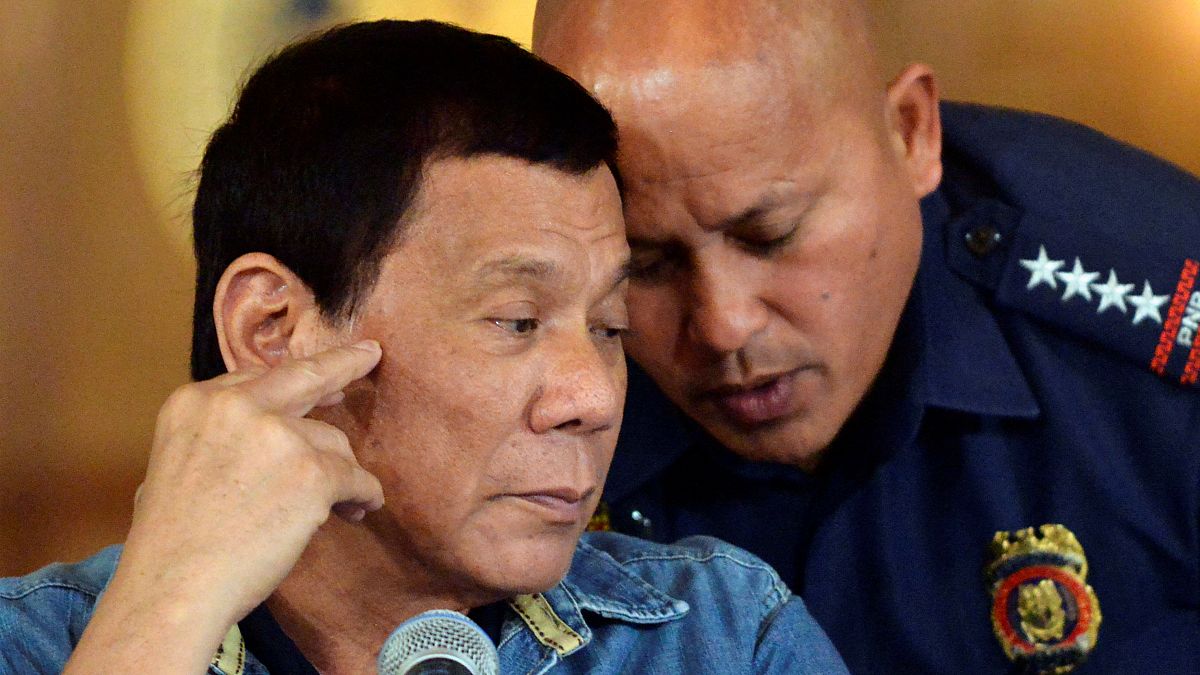Human Rights Watch and Amnesty International call for investigations into the extrajudicial police killings of President Duterte's war on drugs
Human Rights Watch and Amnesty International, two of the world’s leading human rights advocacy groups, have scathingly critiqued the extrajudicial police killings that have characterised Philippine President Rodrigo Duterte’s war on drugs.
Amnesty International accuses police officers in the Philippines, acting on orders from the top echelons of government, of carrying out more than 7,000 drug-related killings.
It accuses the Philippines of possible crimes against humanity.
In a newly published report , Amnesty said the alleged police killings systematically target the poor and accuse officers of fabricating evidence and incident reports, stealing from their victims and hiring paid killers in the seven months that President Duterte was elected into office vowing to take a tough stance on drug dealers in the country.
Amnesty’s report comes on the heels of Human Rights Watch who this week called for the United Nations to lead an independent internal investigation into the alleged police killings.
The move coincides with Philippine National Police Director-General Ronald dela Rosa calling for all anti-drug operations in the country temporarily suspended.
The suspension dela Rosa said is to allow for Philippine investigators to purge police ranks with suspected links to the drug trade.
“Suspending police anti-drug operations could reduce the killings, but they won’t stop without a meaningful investigation into the 7,000 deaths already reported,” said Phelim Kine, Human Rights Watch’s deputy Asia director. “The Philippine police won’t seriously investigate themselves, so the UN should take the lead in conducting an investigation.”
President Duterte has vowed to keep his war on drugs alive until his last day in office in 2022, despite the two reports and the revelation police officers in October kidnapped and killed Jee Ick-joo, a South Korean business man on false charges.
Ick-joo was arrested by anti-drug police officers, using a fake arrest warrant, who accused him of being involved in drug activities. Within hours in police custody, Ick-joo would be strangled to death, cremated and his ashes flushed down a toilet.
His kidnappers then demanded nearly €170,000 in ransom from wife Choi Kyung for his release who thought at the time her husband was still alive.
The scandal galvanised the country and levied fresh fears Duterte had lost control of his own police force and who were using his war on drugs for personal gain.
“This is not a war on drugs, but a war on the poor. Often on the flimsiest of evidence, people accused of using or selling drugs are being killed for cash in an economy of murder,” said Tirana Hassan, Amnesty International’s Crisis Response Director. “Under President Duterte’s rule, the national police are breaking laws they are supposed to uphold while profiting from the murder of impoverished people the government was supposed to uplift.”
The amnesty report also accuses police officers of being involved in rackets with funeral homes – receiving a commission for each body they hand over.
“The Duterte administration’s relentless pressure on the police to deliver results in anti-drug operations has helped encourage these abusive practices,” said Amnesty’s report.
Amnesty calls on President Duterte to immediately order an end to all police operations involving unnecessary lethal force and appoint a new independent police internal affairs chief to prosecute extrajudicial killings.
